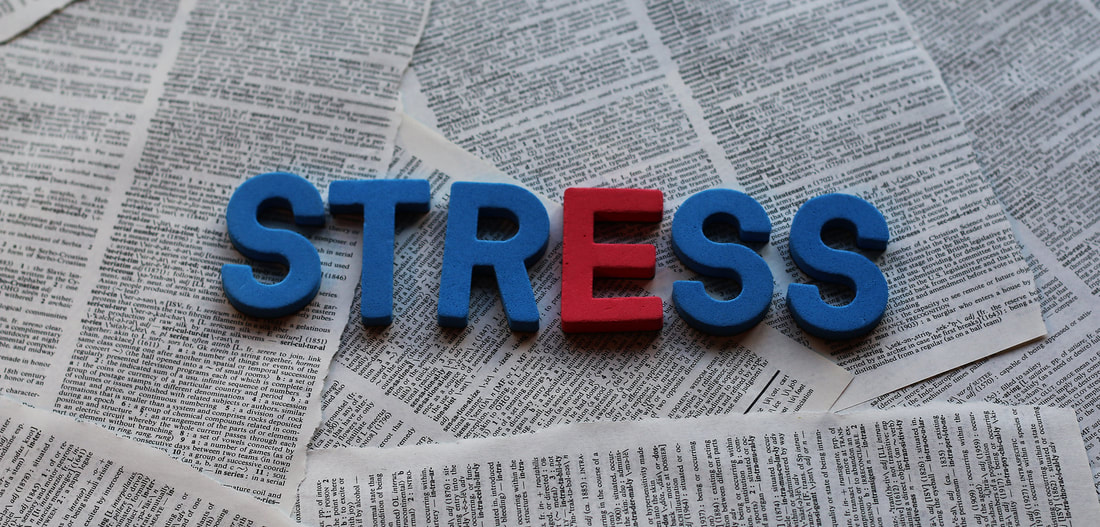Changing Perspectives Blog |
|
Anxiety.
Just the word itself causes many people’s chests to tighten, pulses to quicken, minds to start racing, and their breath to feel more shallow. It’s not fun. If you are one of the many people that experience anxiety on a daily basis, you are not alone. According to the National Institute of Mental Health, nearly 20% of the US population struggles with a diagnosis of anxiety. That means that 1 out of every 5 people deals with some level of anxiety. At least you are in good company, right? Add in a pandemic that requires parents across the country to suddenly home-school their children for the rest of the school year while simultaneously having to either work from home, continue to work their normal jobs as essential employees, or struggle with hours being cut, I’m guessing that the 20% number is more like 75% theses days. How do we manage the anxiety during a global pandemic? How can we somehow find ways to control the crushing anxiety when we are quarantined in our own homes and forced to live a version of life much different than the one we had built for ourselves? How can we prevent the anxiety from becoming a very unwelcome house guest with whom we must spend our lock down? Here are 9 quick strategies to help you regain a sense of control over your anxiety, despite living in the midst of a global pandemic: 1. Let Go of Perfection Now is not the time to put pressure on yourself to learn a new language, start a new workout routine, begin that great diet program to “finally” lose the extra body weight, get your house in tip top shape, or become the perfect spouse, employee, or parent. Now is about surviving and getting through this rough time. So much of what we are collectively feeling right now is grief. Would you expect perfection, increased motivation, improved concentration, and a chipper mood if a loved one just died? I hope not — because you’d be grieving. You are grieving now too — think about the things you have lost. Are you missing face to face time with friends, dinners out with your partner, lunches with your colleagues, commutes to your job, watching your children play sports, or attending a group fitness class? If so, you are grieving. Is your To Do list not getting completed each day? Then the problem is with your list — not with you! You are expecting too much of your grieving self right now. Reset your expectations right now. There will be time to expect more of yourself but that time is not now. 2. Rethink Social Media For many of us, social media has been a bit of a lifeline during quarantine. It has allowed us to connect with our friends, coordinate birthday drive-by parades, laugh at funny tik toks from people that probably shouldn’t be tik tocking (is that a word??), and vent about our feelings. It has kept many of us quite grounded at times. But, social media has always been a potentially dark place. It is where keyboard warriors go to vent their own emotions and frustrations. It’s where name-calling is worse than any school yard could possibly be. It’s where misinformation spreads like wildfire. It’s also a place where people don’t often change other people’s points of views. Used incorrectly, it can be a place of wasted emotional energy. If your social media friends, groups, pages, or followed sites are causing increased anxiety from you or are making your own blood boil, hide them, unfollow them, snooze them, or even delete them. There is no sense getting into a conversation about it, alerting them to it, or trying to tough it out. Just delete and move on for now. Clear your social media so that it can be filled with people and stories that make you feel good — or at least don’t make you feel worse. 3. Make Room For Self Care When in quarantine, so many of the things that filled our tanks and made us feel good are now off limits. Although it may feel like you don’t need self care because life has maybe slowed down for you, because of everything going on and the heaviness that surrounds every day, self care is actually more important now than ever. What can you do for yourself? Look at your schedule and block out some time for just you. Go for a walk alone — even if your dogs and your children look at you with sad puppy dog eyes. Get in your car and go for a drive alone. Go sit in your car in a parking lot, roll your windows down, and read a book or listen to a podcast or play some music. Take a nap. Pour yourself a glass of that fancy wine you’ve been saving for a special occasion and watch your favorite movie. You may need to get creative but find a way to take care of yourself each day. There is no right or wrong way to self -care — it’s just important that you carve out the time and do something for yourself. 4. Say No After spending so much time in quarantine, many of us have gotten very good at connecting with friends and family virtually. But, what many people are beginning to experience is technology fatigue. There are only so many virtual cocktail parties, group video chats, and Zoom bingo’s we can have before we start to crave some time away from the computer and phone. It’s ok to turn down some of those many invitations you are receiving from professional colleagues, friends, and family. It’s perfectly acceptable to take some time and NOT connect. In a weird way, many people are socializing MORE now than before the quarantine. Would you be going out this many nights a week or seeing friends in person as often as you are connecting virtually with them? It’s ok to cut back a bit — even if it’s just for a few days. 5. Get Moving Physical activity can really help break up long days in quarantine. If you live in an area of the country where even walking or running outside now requires a mask and parks are closed, your best options for getting moving may now require some added creativity and planning. Maybe you could take an early morning walk around your neighborhood, apartment complex parking lot, or even do laps up and down your own driveway. Or, perhaps your best option to get moving may be inside your own home. With lots of gyms, fitness studios, and online programs finding a way to stay relevant and profitable while not able to operate their physical space, there are many free and reduced options to try online. Have you always wanted to try a Barre, Pound, Zumba, BodyPump, Kickboxing, or any other workout program? You probably can find a way to try them all within the comfort of your own home now. Imagine — no one can see you trip or stumble or struggle with any of the moves! Choose one way to get moving for at least 10 minutes each day and note how you feel after you have done it. 6. Breathe What do you do when anxiety hits you full force and you can’t catch your breath? Being able to get control of your breathing again is key. One of my favorite breathing techniques to recommend is one called Square Breathing. Think of this as breathing in a square. There are five steps to square breathing: 1. Inhale for a count of 4. 2. Hold your breath for a count of 4. 3. Exhale for a count of 4. 4. Hold your breath for a count of 4. 5. Repeat steps 1–4. The Square Breathing technique takes some practicing. You don’t want your counts to be so fast that you hyperventilate. You also don’t want them to be so slow that you almost pass out. It’s best to practice this when not feeling anxious so that you know how to do it when you need it. Take a few minutes each day to practice being aware of your breathing. It’s amazing what a few good deep breaths can do for our minds and bodies. 7. Point Out the Positive It is really easy to become overwhelmed by negative information during a global pandemic. But, I promise you, there are positive things out there too — you just may need to look a little harder to find them. Try to find and read at least one positive, funny, or hopeful news story each day. Try to watch a tv show or movie or read part of a book each week that focuses on a funny, hopeful, or lighthearted story line. In addition to seeking out the positive, you can choose to BE the positive. Before you share that negative post or meme on your social media page or with your housemates, stop and think about whether it’s worth it. Would it be better to share something funny or bright right now? How would it feel to make someone else smile or laugh right now? It’s amazing to see what can happen once we start searching for and leaning into the positives and leaning away from the negatives. 8. Focus On Your Thoughts There is a thing that many of us with anxiety do — it’s called catastrophizing. When we catastrophize, we think about the worst possible thing and worry about it happening to us or our loved ones. We wonder how we would respond and how we can be prepared for the bad thing so that we are never caught off guard. Sound familiar? Become aware of your thought patterns and when you catch yourself starting to fall down the rabbit hole of “what if,” pull yourself back to reality. Ask yourself what value this line of thinking is providing right now. Ask yourself how likely the things you are worried about happening actually are right now. If that’s not enough to stop your catastrophizing, start a “worry journal” and write down your worried thoughts there. Give yourself a limit on how long you can spend reading and writing in your worry journal and make sure you give yourself equal time to write about and think about the positive things in your life, the things you can still have hope about, and the things you look forward to doing in the future. We don’t have to let our thoughts control us. We can climb into our own brains and begin to take control of our thoughts. 9. Consider Counseling Even thought many counselors (myself included) have moved their practices to an online format during the pandemic, now is still a good time to begin counseling for the first time. Although meeting a therapist for the first time via video or phone chat may be awkward, it can be a great opportunity to vent, unload, and have someone completely there for YOU for 45 minutes each week. They can also help you explore specific strategies to help manage the anxiety you are feeling now. How great would it feel to have someone there for you every week, holding supportive space for you, and helping you to develop new strategies for coping? All without having to leave your home! Although this pandemic and resulting quarantine time may leave you feeling very alone within your own home, remember that you are not alone. There are many people out there who struggle with anxiety even when there isn’t a pandemic. So, don’t be afraid to talk about your feelings with your friends and family — it is very likely that some of them are feeling the very same way. Anxiety is nothing to be ashamed of and it is not something that has to control you. With practice, you can learn how to turn down those anxious thoughts and have greater enjoyment in your life, even when you life is completely turned upside down from a pandemic.
0 Comments
“I’m one of the lucky ones,” I remind myself as I start yet another day at my kitchen table, the place where I now can be found trying my hardest to balance the responsibilities of working from home with parenting two children and attempting to serve as their substitute teacher. Any given morning now finds me tackling clinical documentation and billing for my private therapy practice while helping my 14 year old muddle his way through assignments for 8 different subjects in a now completely digital learning environment while also debating the usefulness of responding to a journal prompt about an abandoned fort with my 5th grader.
Each day begins the same in this new Groundhog Day version of life and as I sit down at the kitchen table, I am keenly aware of the fact that I have less than 90 minutes to get at least some “school time” in for my kids before I completely ditch them and lock myself in my home office for 8 back to back psychotherapy sessions. Sure, I’ll pop out for the 10–15 minutes I have between sessions to refill my water glass, throw some food at my boys, put dogs out for a bathroom break, break up whatever dispute has started between the boys, and maybe even find time for a restroom break myself. Then it’s right back to work — headphones in, camera on, therapeutic space live and on the air. “I’m one of the lucky ones,” I remind myself as I hold space for patient after patient who is working on the front lines of the COVID19 crisis. ICU nurses, doctors, and social workers all recounting horrible tales of what they are seeing day after day to me in our sessions. Suddenly my practice has become one filled with trauma work as I help my clients find hope, practice self care, and manage their intense fears of the virus. “I’m one of the lucky ones,” I remind myself as I sit virtually with new moms who were already struggling with postpartum anxiety and depression and now have lost many of the lifelines we helped them to establish in our work together before the virus changed our world. “I’m one of the lucky ones,” I remind myself as my email and voicemail inboxes swell with former clients who are reaching out for support in light of what the virus has done to their lives. “I’m one of the lucky ones,” I remind myself as I attempt to support patients who finally had achieved pregnancy after years of loss and failed IUD cycles and yet now have to attend doctor’s appointments alone and fear that if things get worse they may even have to deliver their babies without their partner present. “I’m one of the lucky ones,” I remind myself as patient after patient shares their fears about what will happen to them now that they have been laid off or furloughed or are no longer feasibly able to retire in a few months as their funds took too big of a hit. “I’m one of the lucky ones,” I remind myself as friends around me face grief, loss, and challenges completely unrelated to COVID19 — things like the sudden deaths of loved ones, health issues, and relationships coming to an end. “I’m one of the lucky ones,” I remind myself as I begin to realize that I feel completely and wholly inadequate — utterly only mediocre in all aspects of my life now. “I’m one of the lucky ones,” I remind myself as I wonder how I can possibly be the therapist my clients need when one of my ears is always listening to make sure my boys aren’t calling me to help them with something. “I’m one of the lucky ones,” I remind myself as I question how I can be the parent my boys need when every day finds me shut up in my office with instructions for them to only bother me if there’s an emergency. “I’m one of the lucky ones,” I remind myself as I worry about how I can be the wife my husband needs when he is continuing to manage a 24 hour/day medical service from home 2–3 days/week and then covering at least two 12–14 hour shifts each week. We are two ships passing in the night and when we finally do get to see each other we both are too emotionally spent to even acknowledge each other’s presence. “I’m one of the lucky ones,” I remind myself as I try my best to reach out to my friends and family to offer them support and remind them that they are loved but I find my energy at the end of the day is almost completely nonexistent. “I’m one of the lucky ones,” I remind myself as I lie awake in bed each night staring at the ceiling, wondering what will happen to us if one of us catches the virus or if my husband loses his job or if the weight of not being able to play sports and see their friends finally catches up with my boys. “I’m one of the lucky ones,” I remind myself as I realize yet again that if I am struggling this much, imagine how much more painful life is right now for others. “I’m one of the lucky ones and it is still ok to not feel ok right now,” I remind myself. Regardless of our individual circumstances, life right now is hard and is not at all like it used to be. Even if you, like me, are one of the lucky ones in all of this, it’s still ok to admit that our situation sucks right now. It’s ok to feel your feelings and wish that things were better for all of us, even for yourself. It’s ok to remind yourself that even though you may be lucky, you still can be hurting. Life sure is different these days. If you are struggling with the challenges of the current Covid-19 Pandemic and the resulting quarantine, you may find the list of podcast episodes below quite useful.
Episodes include strategies to help your children cope with their anxieties around the changes, suggestions to find a way to still focus on your relationship despite being in quarantine, how to transition to working from home, and techniques to help make homeschooling more effective and less of a challenge. Top Covid-19/Quarantine Podcast Episodes Episode 58: Managing Children's Anxieties Around COVID19 Episode 59: Stay At Home Date Ideas: A Pint Sized Perspective Episode 60: Working From Home: Navigating The New Normal Episode 61: How To Survive Quarantine As A Couple Episode 63: Schooling At Home: One Family's Perspective Thanks to the COVID-19 pandemic, many people throughout the country and around the world are finding themselves rather suddenly working from the confines of their own home. If you are someone who has grown accustomed to commuting to and from your office each day, working alongside others, and being away from home for 9+ hours each day, these changes are big. Huge! Gone are your long, social, chatty daily rides on the train to and from work where you often get to sit with that nice lady from that big finance firm and that kind gentleman from that non-profit education program. Gone is the hustle and bustle of the subway station after work as you dart quickly through the crowd to catch your standing room only train ride home. Gone are the opportunities to stand at your coworker’s desk and catch them up on the latest drama with the other soccer moms or the newest item on your cousin’s baby shower registry. Gone are the lunches in the break room where you belly laugh with your coworkers for 20 minutes each day and commiserate about the latest work directives. Gone are your hour long car rides alone where you can listen to whatever you want on the radio, whether you are blasting 80’s rock tunes or singling along to 90’s ballads. Things are going to look very different for a while now. Your work week filled with other people, lots of noise, and hustle and bustle is now a long 5 days filled with very little physical contact with other humans, a lot of silence, and a whole lot of stillness. At first, these changes might be a nice break from your busy work life but, after a little bit of time, you may find that you are getting antsy and would give almost anything to go back to the way it used to be pre-COVID-19. Despite the challenges of these times, though, if you follow these 10 strategies for transitioning to working from home, you just may find some joy in this new temporary normal. 1. Establish Working Hours One of the biggest challenges when working from home is that there are suddenly no clear boundaries between work hours and non-work hours. Decide what time your work day will start and what time your work day will end. If you were a commuter, you’ve now gained some extra non-work time at home at both the beginning and end of the day. What can you fill it with that will be fun, relaxing or restorative instead of just filling it with more work? Resist the pressure to start work early or “stay” late. 2. Keep Your Morning Routine It’s tempting to plan to stay in your pajamas all day (or at least your pajama bottoms if you have some video conference calls). But, resist the urge and instead continue to spend time getting yourself ready for work each morning. Take your shower, make your bed, do your hair, put on your makeup, and wear something that you wouldn’t wear at home on a Saturday morning. Doing so will help your brain to understand that there is a difference between work hours and non-work hours. 3. Set Up Your Work Space Select an area of your home where you will be comfortable setting up your work space. You may even choose to select multiple areas and move your “office” throughout the day. Be creative. Feel free to order a few things online or re-purpose some wall hangings, art, or pictures from other areas of your home. As the weather gets nicer is there an area outside where you can do some work? Make your work space inviting and personalized. 4. Take Breaks Alone When you “arrive” to work each day, take a look at your schedule and decide when you will take some breaks and then use those breaks to do something for yourself. Take a quick walk outside. Have a cup of tea in another room. Download a meditation app and do a 5 minute meditation. Read a few pages of a book. It doesn’t really matter what you do as long as it isn’t work or household chores and is something that allows you to relax for just a few minutes. 5. Spend Time With Your Children If you are one of the vast number of parents who now have children home for weeks and months at a time, you are probably feeling the pull between attending to your work tasks and attending to your children’s needs. Plot out time each day to be with your children where you are not focusing on their at-home learning. Plan to eat lunch with them or take “coffee” breaks with them. Take the dog on a walk with them. Throw the baseball around with them. Be with them and enjoy this once in a lifetime chance to be at home together. 6. Check In With Your Partner These times are going to put a strain on many relationships. Couples who are used to not seeing each other all day everyday may be in for a bit of a shock with just how much they will be seeing of each other’s faces soon. Or, maybe one member of the couple is an essential employee and can’t be working from home, leaving the other member of the partnership to be feeling a bit more of the responsibility of having to work from home while caring for kids. Maybe this new set up will leave you feeling a financial strain. Chances are, no matter what the circumstances, this is going to be stressful for many couples. Talk with each other about it and find out what you each will need in order to feel supported during this time. Have a little “staff meeting” with each other at the start of each work week and at the end of each work week where you check in about what worked and what could have gone better. Communication is key! 7. Feel Your Feelings We are living through a time quite unlike anything many of us have ever experienced. No matter how stressful your job, your commute, or your relationships with coworkers may be, having it all change so suddenly can feel traumatic at times. Don’t be surprised if you find yourself feeling anxious, angry, sad, and/or numb. Allow yourself to cry, shout into the shower water, punch a pillow, or just sit and feel nothing. There is a lot of grief in what we are currently experiencing and the only way to deal with grief is to feel it. 8. Reach Out With limited social gatherings, it is going to be very easy to find yourself feeling isolated and lonely very quickly. Make it a point to reach out to friends via text, Facetime, social apps, and even the good old telephone. Schedule group chats with your friends where you can check in together a little bit without being physically near each other. Maintaining friendships and connections may take a little more effort these days. It’s worth it! 9. Focus On Your Health It is really tempting with gyms closing and our lives turning inward for a while to open up that bag of chips and throw our diets and exercise plans out the window. The reality is that we need to do the opposite right now. Make a plan for your meals and for at home workouts. Commit to your plan with a friend or your partner and check in regularly. After all, what boosts our immune system more than taking care of our bodies with good nutrition and healthy fitness habits? 10. Change Your Social Media Many people’s inclination right now might be to limit your use of social media but I think we NEED social media right now. We need to feel connected to each other, part of something bigger. Lean into social media but do it in a completely different way. Hide, snooze, and ignore a whole lot of people for the next 30 days. If you are feeling deeply triggered, irritated, hurt, or angered by someone’s posts, get them off your feed for the time being. There’s no space for that right now. Fill your feed with lightness. Hide the news — you can find it when you need it. Post fun photos. Ask engaging questions. Talk about books, movies, and television. Share helpful tips. Post recipe reviews. Share at home workouts. Social media can be an important lifeline to each other right now if we use it in the right way. These days ahead of us are going to feel strange, challenging, and sometimes even painful. But, if we are mindful and deliberate in how we approach this time in our life, we just might find that these days could be ones filled with memories, laughter, and a renewed connection to ourselves and the people we love. Everywhere we look right now we hear and see the same few words over and over again.
For many of us, this constant news cycle can be overwhelming, tapping into our already somewhat heightened levels of anxiety. For those of us that are parents, we have an added layer of concern: how do we explain the current state of affairs to our children and provide them some sense of reassurance? While there is no magic elixir, magic wand, or secret rule book, there are a few key strategies that just might help us to decrease our children’s current worries and restore a sense of hope. 1. Be Honest As with most things, children know more than we think they do and they crave honest information. As much as I want to shelter my children from hearing about the potential bad things that could happen, now that they are in school and in sports, this is simply not a reliable option. They can potentially overhear information from an adult or directly from another child in a number of locations. When parents make the decision to provide their children with honest information, there is better control over what and how specific information is shared with their children. 2. Watch What You Say On the flip side, be mindful about what you say around children, not just around your own children, but when you are out in public. You don’t want to be that person who exposes another child to information their parents had not yet shared. 3. Consider Development Children’s emotional and cognitive capacities develop significantly throughout their childhood. Before sharing details with them, take their developmental stage into consideration. A 12 year old will want and need more specific and detailed information than a 7 year old may need. Avoid going into too much detail or overwhelming them with details. Let them guide you on how much information they need. 4. Be a Role Model Let’s face it, children learn a lot from watching their parents: the good, the bad and the ugly. Show your children that feelings like anger and frustration are normal. If you are angry, name it. Be sure to not only show your child that it is normal to feel emotions but also demonstrate acceptable ways for them to express those emotions. Avoid holding it all in and expressing it only when the children are not around. Let them in on the realness of feelings. You will be providing them a solid model for how to handle and manage life’s biggest challenges to come. 5. Reassure. Reassure. Reassure. Children need to feel safe and the adults in their lives are the ones who are tasked with that monumental responsibility. I am not advocating for you to tell your children that nothing bad will happen to them or near them ever as that would be a lie. You cannot predict the future. You can, however, point out that good stuff happens far more often than the bad stuff. Remind children of all the people and systems in place to keep them safe and all the healthy people around them. Reassure them that you would never knowingly put them in a dangerous situations. Highlight safety measures that are in place in they express fear over attending a certain event. Repeat as many times as necessary. When you think you’ve said it all enough, say it one more time. 6. Limit Media Television news, social media accounts and newspapers now provide non-stop, around the clock coverage of the virus outbreak. Pictures, video, audio clips; it’s all out there and it can quickly become too much for children. Be mindful of what children may be exposed to and consider whether it is necessary. I recall hearing accounts from 9/11 that many children interpreted the frequent replay of the plane hitting the tower as multiple planes hitting multiple buildings day after day. Even if you think your children aren’t watching the news with you or don’t see the headlines on the newspaper, think about what they may overhear from the next room or what they may see when the newspaper is left casually on a kitchen table. 7. Create an Open Dialogue Children need time to process things. It is not unusual for children to need days or even weeks to develop questions or be able to express their thoughts on difficult topics. Send your child the message that you can always find time to talk with them. Many parents have success by carving out time each night around bedtime for an opportunity for children to share their experiences, thoughts, feelings and ask questions. Some parents schedule weekly one-on-one parent/child dates at a coffee shop or fast food restaurant to connect. These conversations tend to be better received when they focus on one child at a time, rather than as a family dialogue with multiple children of various developmental stages. 8. Point Out the Positive Despite what we see on a daily basis, there are lots and lots of great things that happen locally, nationally and internationally. Seek out the good stuff and share it often with your children. Local newspapers can often be a more positive source of news, particularly for children. Highlighting the positives can also go a long way to helping children feel safe. No amount of the good stuff is too much! 9. Monitor Behavioral Changes Keep a watchful eye on your child’s behavior. Changes in sleeping and eating patterns may indicate that your child is having a hard time processing some events and information. Changes such as suddenly wetting the bed again or asking to sleep in your bed could be a normal response to stressful information. Be careful not to shame your child about changes like these. Rather, give them some time, continue to provide reassurance and keep a watchful eye. If you are concerned, reach out for support. Your child’s school, their pediatrician and local child therapists are all great resources. 
Online shopping and home delivery are two of my best friends in life. Need a last minute school supply and don't feel like sorting through half-empty bins at the local Target? Hop on Amazon.com and they can be at your door within 2 days. Need a gift for a party this weekend? Amazon will do that for you. Need someone to ship toilet paper to you every month so that you never run out? Amazon can do that.
You know what else Amazon is good for? Helping you manage your stress and anxiety. Honestly. There are lots of products available on the Amazon website that can be useful tools to have in your anxiety management toolkit and below you can find 7 of my favorites. Some of these links are considered "affiliate links," meaning if you click through these links to make a purchase, I might earn a small commission. Keep in mind that I link these companies and these products because of their quality and not because of the commission I receive from your purchases. All of these are products that I have used personally or professionally and many have also been successfully used by my clients and colleagues.
1. Weighted Blanket
Are you someone who likes a good hug or snuggling up under a warm blanket? Do you feel better when you can sit somewhere that makes you feel safe and secure? A weighted blanket provides all of those physical sensations. I first used weighted blankets over 25 years ago when I worked with children who had sensory processing difficulty. The blankets were heavier than your normal blanket and would help calm them and make them feel safe. I soon learned that they also worked for me, giving me an instant feeling of calmness even from holding the blanket on my lap. Today, weighted blankets are available in a variety of sizes from lap blankets to king size blankets and in a wide variety of weights. I promise you, a weighted blanket will quickly become your favorite item to turn to when feeling anxious and overwhelmed.
2. Essential Oils
I use essential oils all the time in my home and in my office. (For more information on how I use essential oils, visit "Seven Ways to Use Essential Oils.") When it comes to anxiety relief, there are essential oil blends specifically formulated to reduce stress, improve relaxation, and help you to calm your mind. You can use some of these oils topically (mix them with a carrier oil first such as almond oil) or even ingested. I prefer to diffuse a few drops of them in an essential oil diffuser. Just a few drops will help to ease any stress and anxiety you or your family may be feeling and it will leave the air smelling fresh!
3. Workbooks and Journals
If you are self-motivated, workbooks and journals can be a great tool to use to help you gain insight into the root causes of your anxiety. You can set some time aside each morning or evening to review a section and complete some of the worksheets included. Although not a replacement for one on one counseling, workbooks and journals like the ones below can be an excellent way to help you start to gain control of your anxious feelings.
4. Zen Garden
If you have ever seen these tabletop Zen Gardens, you know how calming it can be to allow yourself to do nothing but rake the sand and lay out the decorative rocks. Adding one of these to your desk at work or to a tablespace at home will provide you with a daily reminder to slow down and breathe.
5. At Home Fitness
One of the most effective ways to combat anxiety is to find a way to release some of the pent-up anxious energy. Exercise is a perfect way to do this. If you don't have time or the funds to go to a gym, there are lots of ways that you can work out right in your own home. Cardio has a lot of benefits when it comes to anxiety management so a simple home exercise machine like a rower or a stationary bike can be a good addition to your routine. You can get one delivered to your door for less than $120. That's a small price to pay for some anxiety relief.
6. Adult Coloring Books
There is something very calming and relaxing about coloring an intricately designed picture. I'm not talking about cartoon character coloring books like we had when we were young. These coloring book options for adults are meant to take some time and are even more enjoyable when done with a set of good quality thin tip markers or colored pencils. This is an activity you can do with others too. So, grab a few friends, put out some refreshments and get your coloring on! Watch as your anxiety starts to drift away.
7. Bath Bombs
You either are a bath person or you've never actually had a good bath. A nice hot bath at the end of a long day can be a great way to quiet your mind and increase your relaxation. Bath bombs can make the experience even more beneficial by adding some calming fragrance and skin softening properties to the water. Don't like bath bombs? Try bath salts or take a bubble bath. No matter how you prefer your bath, make some time to pause from your daily hustle to slow down and relax.
Wouldn't it be great to feel like you have a bit of a better handle on your anxiety? Can you imagine your life without the weight of anxiety always looming over it? Isn't it time to add to your anxiety management tool kit? Go ahead and invest in yourself!
Jenni, stop! You’re overthinking it!
My friend’s words snapped me out of my anxious thought pattern and brought me back to reality. Nothing about my situation required me to be overthinking anything. I took a deep breath, closed my eyes for a moment, and then opened them, taking in the full scene before me. It was a sunny summer day without a cloud in the sky. I was spending my Sunday morning lounging in an over-sized inflatable tube, tethered to a group of over two dozen of my friends and their children, all in their own individual tubes, as we floated lazily down 5 miles of a river in New Hampshire. The air was filled with the sound of laughter as music from a speaker in a waterproof pouch provided the soundtrack. Other groups in kayaks and tubes drifted by us, everyone smiling and waving at each other. What could there possibly be to overthink? Bags were stowed safely in inflatable rafts of their own, complete with sunscreen, dry towels, cell phones, empty trash bags, and snacks. Even our coolers filled with ice-cold beverages had their own floats, some with very useful cup holders. We could take as much time as we wanted floating down the river back to our cars. We could stop whenever we wanted and rest on a beach at the river’s edge. Everything about the day was laid back and care free. Except for me. Again. Just one day before our river tubing trip, my husband, our two sons, and I rode a gondola to the top of a New Hampshire mountain where we took in the breathtaking scenery and prepared to eat a picnic on the mountaintop. As I was taking a photo of the view, my 10 year old found a sign near a trail that indicated it was part of the 2200 mile long Appalachian Trail. Let’s hike it! My 10 year old proposed the idea with a huge smile on his face, a smile I don’t see quite as often now that he is approaching his teenage years. Instantly I began overthinking it. But we don’t really know where it goes…We were going to take the gondola back down….We have our lunch with us…I don’t know how hard the trail is…What if someone gets hurt… My 10 year old son and my 13 year old sons looked at me and sighed. Come on, Mom! It’ll be fun. We’ll just go in and when we want to be done, we’ll turn around and come back out. This was a magical moment, my two sons were wanting the same thing and weren’t arguing about anything. Just then my husband came up behind us and when the boys told him their plan, he shrugged his shoulders and said, Cool. That was it. No overthinking. No “what if…” Just, “cool.” In that moment, I desperately wished I could be more like the three of them — carefree, able to be in the moment, not anxious. So, I pushed all my fears aside and we headed into the trail. The thoughts continued inside my head during our hike but I kept them to myself, determined to not let them ruin my day or anyone else’s day. It turns out the hike was pretty strenuous. We were climbing up rocks, jumping down over structures, and had a few stumbles. But, we shared a few laughs, got to help each other with the climb and descent, and enjoyed the time on the trail. On our way back to the top of the mountain, we met a woman who was hiking with two companions, each over 70 years old. She shared that they had hiked nearly all of the segments of the Appalachian Trail in their lifetime and this particular part of the trail and one other in the area are all they had left to complete. There’s no way they were overthinking it. They were living their best life, climbing a flipping mountain at over 70 years old. Yet there I was, in the middle of a mountain, and then in the middle of lazy tubing trip down a river, overthinking all the small stuff. If I had listened to my anxious thoughts on that mountain, I wouldn’t have the amazing memories my family now has from that trail. I wouldn’t have heard the story about that couple in their 70’s. We wouldn’t have been so interested in the Appalachian Trail that we would read about it later as a family. If I had listened to my anxious thoughts on that river, I wouldn’t have laughed so hard that my stomach was sore the next day. I wouldn’t have found the humor in so many memories from that day, even when our group of tubes got caught on some mini rapids and we needed to work to free ourselves. My overthinking almost stopped me from fully living in so many moments on that trip. So, here I sit, overthinking my overthinking. Is it possible to leave my overthinking tendencies at home on my next vacation? Could I add “hide the overthinking” to my pre-vacation To Do List? Could I at least tuck it away in my suitcase and just leave it there during the trip like all the unused “just in case” shirts and outfits? I’m not quite sure of the answer but what I do know is that even if my anxious thoughts tag along on my next vacation, I don’t have to listen to them. I don’t have to believe them. I don’t have to give them power. I don’t want to let them keep me from fully enjoying my vacation, my family, my friends, or my life. Instead, at least for now, I can simply keep telling myself, Jenni, stop! You’re overthinking it! Article by Mark Tyrrell of Hypnosis Downloads.com. Improve your self confidence in 15 minutes I used to be frighteningly under confident in social situations. And although people who know me now would never believe I used to doubt myself so much I literally had to learn confidence until it became a natural part of me. I can tell you relaxed optimistic confidence is just, well so much more fun. Here I'll tell you about the things that made the most difference to my confidence levels... Some people have naturally high levels of confidence but everybody can learn to be more confident Firstly, it's important to get a clear idea of what self confidence really means, otherwise you won't know when you've got it! So, self confidence means: 1) Being calm. For every situation in life you need to run on the appropriate level of emotion. Too much emotional 'leakage' into a experience can spoil the experience. You make great strides towards confidence when you begin to relax in a greater range of situations. 2) Being cool. The second part of self confidence is about being able to relax with uncertainty. To be 'cool' in a situation really means relaxing with not knowing how things will pan out. If you truly tolerate uncertainty, you can do pretty much anything. 3) Not being too concerned with what others think of you. You know when you imagine what some place is going to be like before you go there but when you get there it is totally different to your imagination? That's how reliable your imagination is! Stop trusting your imagination so much. I've long since stopped bothering to imagine what others think of me because so often I've turned out to be wrong. 4) Being specific - where do you want confidence? 'Confidence' is meaningless until you tie it to something specific. You are already confident that you can read these words or can switch a light on and off. So you don't need more confidence everywhere. To get what you want in life you have to establish exactly what you do want. Where do you want confidence in your life? Think about the specific situations now and write them down. You beginning to steer your brain towards confidence. 5) Understanding that what you expect is what you get. Your brain is an organ that needs clear goals to work towards. When a task has been set in your brain it will do everything it can do to bring about the completion of that task. If you've tried to recall someone's name but can't, hours later you'll often find their name pops into your head. The 'trying to recall' experience set the task or blueprint for your brain's future subconscious behaviour which eventually produced the name for you - when you weren't thinking about it consciously. You can use this natural mechanism to start feeling more confident. But, to ensure you set the right task for your subconscious mind, the next point is vital. 6) Don't task your mind with negatives. Instead of: 'I don't want to screw up' (which sets the task of 'screwing up' for your brain), set the blueprint for what you do want! Your brain doesn't work towards what to do by being told what not to do. And nature has given you a wonderful natural tool to set the right task blueprints with. 7) Use nature's goal-setter: Now you understand how vital it is to set the right task for you brain, you need to know how to do this reliably. Good hypnosis will strongly 'program' the right blueprint in your mind through the use of your imagination. If you powerfully imagine feeling confident and relaxed while in a relaxed hypnotic state it will be hard for your unconscious mind to do anything else. The blueprint for relaxation has been set firmly into your subconscious mind. 3 simple strategies to get you feeling confident quickly: 1) Think specifically of the time/place/situation you want to feel confident in. Remember 'confidence' doesn't mean anything until you attach it to something specific. 2) Focus on words in your mind right now that describe how you do want to be in that time and place. Maybe words such as 'calm', 'relaxed' or 'focused'. Remember your brain works on clear positive instructions. 3) Close your eyes for as long as you like and think about how those words feel. Then, imagine the situation itself and rehearse it in your mind feeling confident and relaxed. This way you set the right blueprint or 'task' for your unconscious mind. You can repeat this often to make it more effective and use it with as many areas of your life as you need to. If you listen to a hypnotic cd or download that can make the benefits even more powerful (see my profile below). So if you feel like you'd be blessed with less confidence than some other people you can start redressing the balance by using your mind in the right way right now. It took me years to learn how to be more confident - now you can do it in a fraction of the time. Good luck! Boost your confidence now at HypnosisDownloads.com Article by Mark Tyrrell of Hypnosis Downloads.com. Article by Mark Tyrrell of Hypnosis Downloads.com. 7 Public Speaking Survival Tips I used to be terrified of public speaking - now it's natural and fun. Dry mouth, fast heart, sweaty palms, blank mind - yeah I've been there! It's easy to fear public speaking. But I was never just content with overcoming fear. I wanted to be a great speaker. What I needed was a way of calming down and applying simple techniques and strategies to talk like a pro. When I'd learned to relax (more of that later) I learned and applied the following four steps.
How do you become confident enough to apply the four steps? Here's some tips some of which are practical some of which are to do with the way you think about your public presentations and also how you can start to change the way you feel about them. Tip One Breath your way to calm. When you breath out you relax that's why people sigh when they're stressed. Breathing in without breathing out causes hyperventilation and worsens anxiety. Just before your speech take five minutes breathing in to the count of seven and out to the count of eleven (quick count-not seconds!). On the out breath hold it a second before breathing in again. This will produce quick and lasting calm. Remember extending the out breath calms you down. Tip Two You have a responsibility as the presenter but relax you don't carry all the responsibility. Presenting is a team effort. Audiences are responsible for politeness, extending their attention and attempting to learn. It's not all you-it's a meeting of two halves. Never mind how they judge you. How do you judge them? Tip Three Use metaphor and stories. We all experience life metaphorically. The most technical logical person spends at least two hours a night dreaming! Talk detail if necessary but present patterns with metaphors. Folk from 4 to 104 love stories. Use em. Tip four Captivate attention by using words that evoke all the senses. Describe how things look, sound, feel, smell and taste. Paint pictures and sensations in their minds with your words. Tip Five Vary your voice tonality and speed of delivery. Keep them alert and engaged. Convey energy when need be and slow down when you need to 'draw them in close.' You are the conductor to their orchestra. And pepper your talk with humour. Your willingness to be funny shows personal confidence and confidence is contagious. Tip Six Tell them what they are going to get. What they are currently getting and then what they have got from you. Sell your sizzle! Tip Seven Watch and learn from other great speakers until compelling, relaxed speaking is a part of you. Rehearse positively. You need to rehearse how your going to feel as well as what you are going to present. Don't think about your forthcoming presentation whilst feeling nervous as this creates an instinctive association between fear and presenting. This natural negative self-hypnosis is very common with nervous speakers. Hypnotically rehearse your speech whilst feeling relaxed. This produces the right 'blueprint' in your mind. In fact when you do this enough times it actually becomes hard to be nervous! All great speakers know how to use great self-hypnotic rehearsal. Hypnosis changes attitudes and can bring emotion under control. I used hypnosis, to change my instincts around public speaking. Now I just can't get nervous whether it's 50 or 500 people. The world needs great communicators. Go for it! Cure your fear of public speaking at HypnosisDownloads.com Article by Mark Tyrrell of Hypnosis Downloads.com.
Have you ever felt like you can’t catch your breath, are wound-up or on edge? Have you ever felt like your mind is racing and you can’t keep up? Do your thoughts about what you have to do consume you? Have you ever laid in bed awake and unable to fall asleep because you have so much on your mind? Have you ever realized that your shoulders and neck are so tense that they become painful? Have you ever felt like there is an elephant sitting on your chest making it difficult to breathe? Have you ever wanted to lock yourself in a room and hide from all the things that you have to do? Welcome to anxiety. It sucks. There is some good news, though. You are not alone. Over 40 million adults in the US report some level of anxiety. That’s 18% of the population. For over 4% of those individuals, their anxiety is severe (National Institute of Mental Health, 2016). Think about those numbers and then think about your life. Chances are that nearly 20% of the adults in your life have dealt or are currently dealing with anxiety issues. That’s 1 out of every 5 people you know. Yet, for so many people, anxiety is a shameful secret they struggle to hide. When your anxiety rears its ugly head, you might find yourself thinking things like “What’s wrong with me?” “Why can’t I just stop worrying?” “Why can’t I just be grateful for all the good things in my life?” You might find that you are starting to turn to some unhealthy coping tools such as cigarettes, alcohol, drugs and food. You might find that your anxiety is causing you to miss work, cancel social activities or even starting to impact your physical health. It’s time to tell anxiety who is the boss in your life. It’s time to tell anxiety to hit the road. It’s time to take control of your thoughts and your mind. You deserve it. And I have a magical solution. Wouldn’t that be nice? Unfortunately, there is no magical solution. It’s entirely possible that your good friend anxiety will stay will you forever. (Wow. This article is turning out to be super motivational and inspiring so far.) The good news is that you CAN learn some ways to manage your anxiety. Anxiety is not something you can beat forever. It is a part of you and is probably part of what makes you, YOU. At some point in your life, your anxiety may have even helped you! However, it does not need to control you or define you. So, let’s look at some ways to manage this beast called anxiety and prevent it from taking over our lives: 1. Let Go of Perfection Many people with anxiety have a belief that they need to be perfect. The perfect mother. The perfect friend. The perfect neighbor. The perfect employee. To you, a messy house is an indication of failure; a child with hair that is a bit overdue for a haircut means that you are a neglectful parent; leaving your trash barrels out until 6pm means that you are the worst neighbor ever; being 10 pounds overweight means that you are disgusting; asking your friend for help means that you are too needy. Stop. None of that is true. Your thoughts can become your own worst enemy. Stop trying to prove your worth. Stop trying to live up to people in your life that you think are perfect. Stop trying to be the best. Honestly, stop. What would happen if you tried to just do the best you can do right now? Maybe your best today is to feed your kids mac and cheese for dinner. Does that mean you are the worst mother? No. Maybe your best today is to throw your dirty clothes in the hamper rather than on the floor. Does that mean you are a lazy slob? No. Maybe tomorrow you can do more. Maybe not. Don’t beat yourself up. Cut “I should” out of your vocabulary. Accept yourself for who you are right now and focus on the good, not the bad 2. Rethink Social Media A quick word on all those perfect people on social media: most of them are fake. Their pictures were posed and reposed, edited and re-edited. Their posts have been rewritten and reworded. Their videos have been cut and redone. What you are seeing is the best version of them, not the real version. Resist the temptation to compare yourself. If there are people on your social media accounts who always seem to have it together and you find that their posts somehow leave you feeling worse about yourself, try hiding their posts for a bit. It’s ok to take a break. They don’t even need to know. 3. Make Room for Self Care In my experience, many of the people who struggle with anxiety are really wonderful caregivers – except when it comes to caring for themselves. They place everyone else’s needs above their own and by the end of the day, there is nothing left for them. That kind of behavior needs to stop if you are ever going to manage your anxiety. What are some things that make you feel good? Is it 15 minutes drinking coffee by yourself in the morning - no phone, no tv, no other people? Is it a long bath at the end of the day? Is it one night out a week with a friend? Is it some time with a good book at night for 20 minutes? Is it scrapbooking or photography or writing? What is it that fills you up a little bit? Once you figure out what it is, schedule some time, preferably daily, for that self care activity. Even 5 minutes each day would be wonderful! Hold that time sacred. Block it out and schedule things around it. Don’t allow yourself to feel badly about it. Self care is not selfish.
4. Relax A large part of learning to manage your anxiety is learning how to calm and quiet your thoughts. Many people have found activities such as yoga, meditation and mindfulness training to be effective at increasing their ability to quiet their mind. It’s not easy. You will likely find your first 5 sessions of yoga, meditation or mindfulness work will leave you feeling even more anxious because you will suddenly be extremely aware of just how fast your thoughts are moving. Stick with it. It will become easier and, with practice, you will be able to sit in silence without your mind racing. These are wonderful tools to have in your toolkit. 5. Get Moving Physical exercise can be extremely beneficial for those with anxiety. Exercise can be something as simple as a 10 minute walk each morning. Go at it with the goal of increasing physical activity and decreasing your anxiety. Resist the urge to set sizeable goals for yourself with regards to weight loss. You want to avoid opportunities for causing more anxiety in your life. Set yourself up for success. 6. Breathe So, what do you do when anxiety hits you full force and you can’t catch your breath? Being able to get control of your breathing again is key. There are two main techniques that I like to recommend to patients:
7. Watch Your Diet Take a few days and track everything you eat and drink. Also track any times of day where you may be feeling more anxious. Look for patterns. Caffeine can sometimes heighten your symptoms of anxiety. Perhaps it would be worthwhile for you to slowly decrease your caffeine consumption and/or limit your intake of sugar. Small and steady changes can make a big change over time. 8. Find a Counselor Perhaps I am biased because I am a counselor, but I tend to believe that everyone can benefit from a counselor or psychotherapist. I recently talked to someone who was hesitant to contact a counselor because they didn’t exactly know how to explain their concerns to the therapist. Don’t worry. A good therapist will help you articulate and identify your concerns and needs. They also can help you learn new coping and calming strategies and skills, can assist you with areas of stress in your life and can help you increase your overall quality of life. Not sure where to find a good therapist? Talk to your friends. They may be able to recommend a great one. You can also check out your health insurance company’s list of approved behavioral health providers. Psychology Today has a great searchable database of clinicians as well. What if you see a therapist and don’t feel like you connect with them? Find another one! This is about you – not the therapist’s feelings. 9. Be Open to Medication I am not one to advocate skipping all of the previous steps and going straight to medication. However, panic attacks and chronic severe anxiety can feel terrifying. There are many medication options available today to help manage anxiety. These medications can be taken daily or taken as needed. Some of you may be thinking, “I don’t want to be snowed.” Or “I don’t want a tranquilizer.” Fear not. Medications are much more refined today than they were decades ago. If you feel you may want to explore medications for your anxiety, speak to your primary care physician or schedule a consult with a psychiatrist. (In general, I find that a psychiatrist tends to be a better option over a primary care physician for medications for depression and anxiety – it’s their specialty.) 10. Be Kind to Yourself This mantra seems to find its way into many of my articles. I cannot stress this concept enough to you. Be kind to yourself. Forgive yourself. Accept that you are not perfect. Accept that you are flawed. Accept that you are human. Surround yourself with people who allow you to be kind to yourself. Better yet, surround yourself with people who encourage you to be kind to yourself. With anxiety, some days are harder than others. In fact, some days just feel damn near impossible. Know that those days will pass and know that there are resources, supports and tools available to help you manage your anxiety. You don't have to fight this battle alone! References National Institute of Mental Health. Any anxiety disorder among adults. (n.d.) Retrieved December 29, 2016 from https://www.nimh.nih.gov/health/statistics/prevalence/any-anxiety-disorder-among-adults.shtml For more blog articles on managing anxiety and depression, click the links below:
If you are like me, you probably can feel the growing holiday tension out there and with each passing day, the tension gets thicker and thicker. You know what I mean. You can feel it when you are shopping in the stores. People scurry by each other, avoiding eye contact as they shop for the "perfect" gift. They fight over the last pink stocking in the Target dollar bin (I saw a woman grab one out of a fellow shopper's hand two days ago as she declared "I saw that first!” ). They roll their eyes, sigh loudly and make rude comments about cashiers who are "too slow." They yell at each other over parking spots. They flash each other the middle finger as they cut each other off on the roadways. Yes, it's beginning to look a lot like Christmas. For sure.
So, with only a few days left until Christmas day, I have a few tips that may help to reduce some of the holiday stress and allow us to enjoy the true spirit of the holidays. 1. Re-evaluate your expectations Chances are you have a "To Do" list a mile long. I'm going to guess that the bulk of that list contains items that are designed to make other people happy. Are you searching for the perfect gift for your children or partner? Are you planning a perfect family gathering that will allow the family to get along and not argue? Are you hoping to finally get approval and a public acknowledgement of your worth from that family member that never gives it to you? STOP! Sit down with your list and really look at what's important. Maybe you don't need to make a perfect roast for the family on Christmas day. Maybe a crockpot ham would be just fine. Maybe you don't need to bake sugar cookies from scratch. Maybe pre-made dough would be fine. Where can you cut corners and make things a little bit easier? Scaling things back a bit won’t turn you into a Grinch but it may preserve some of your energy…and sanity. 2. Get off social media Ok. Maybe that's not realistic. But, at least change the way you experience social media. Chances are that at least 75% of the pictures and posts you see on Facebook, Instagram, Twitter and Snapchat are perfected (read: fake) versions of pictures and posts that have been taken, retaken, edited, deleted and re-written at least 5 times. It's not real. For every "perfect" post you see from a contact on social media, there are probably an equal number of imperfect moments from them. So, when you see that super happy family on Facebook and you think "Why can't we be like them?" remember that the same family could have yelled at each other in the car just five minutes before the post. Don't compare yourself to people on social media. And, let's face it, social media can be plain hurtful. Are there posts from people that always tend to hurt your feelings? Posts that will undoubtedly trigger some unpleasant memories? Go ahead and hide those people. Don’t be dramatic and unfriend them or post passive aggressive memes about them, simply hide their posts. You have the ability to control who you see on your feed. Take a few minutes and clean it up. 3. Spend time with your people You know the people I'm talking about - the people with whom you can be yourself. They accept you - even when your hair and makeup aren't done and you elect to wear sweatpants and a sweatshirt. Schedule time with them where you can just be you. Or, if time is tight, turn to them via phone calls and text messages. Reach out to them when you feel like you are sinking – they are probably feeling the same way! 4. Play Look at children. They have this great ability to let stress roll off their shoulders. Most of the children I know are not stressing about finding the perfect gift, planning the perfect party, cooking the perfect meal or breaking the bank with gift giving. You know why? (Well, a big part of that is because children are selfish little creatures - not a bad thing, that's just where they are developmentally.) I think a big part of it is because they know how to play. As I write this, my oldest son is sprawled out on my couch, wearing his pj's and drinking his decaf coffee while he plays video games. (Boy, did I leave myself open right there for a whole lot of judging.) He could not be happier. Later today he will hang out with some of his friends and they will probably do nothing but flip water bottles, make Musicly videos and watch the Pats game. You know what? They will have a blast because they are playing. We could take a page from their book. Take some time to play. What does that look like for you? Just because we are grown-ups doesn't mean we can't have fun. 5. Nurture yourself Santa probably isn't going to leave you a big fat pile of presents on Christmas day and, if you are a parent, Christmas is sort of all about the kids. So, take some time and do something nice for yourself. Stop and sit at Starbucks by yourself and have a cup of hot chocolate. Get your nails done. Take a nap. Buy yourself a Christmas gift. Take a bubble bath. Go to the gym. Do something for you. It doesn’t have to cost a lot of money or take up a lot of time but it sure can make a difference and you deserve it! I know this list isn’t going to remove all of the Christmas stress from your lives. The holidays can be intensely overwhelming and, at times, painful. But, maybe, just maybe, if you take a few minutes and follow some of these tips, you just might find the holidays a little more bearable and, hopefully, even enjoyable. And, if not, there’s always wine and chocolate.
For more blog articles on stress and self-care, click the links below:
|
About Changing PerspectivesI often find myself encouraging people to consider changing their perspective or reframe the way in which they view things. This blog is an extension of that practice and is also an opportunity for me to write from a number of different perspectives including clinician, educator, mother, friend and supervisor. Blog topics are also quite varied and changeable. Topics explored include, but are certainly not limited to, grief, parenting, health and wellness and relationships. Join me and explore a number of changing perspectives! Categories
All
Archives
April 2020
|

 RSS Feed
RSS Feed














